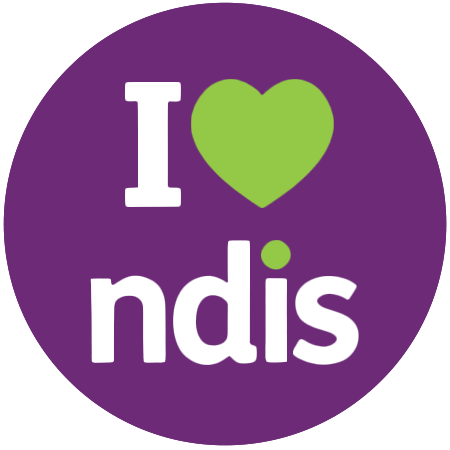
Introduction
Living with a disability doesn’t mean giving up on independence, dignity, or quality of life. Thanks to the National Disability Insurance Scheme (NDIS) in Australia, participants can now access a wide range of essential supports—including personal care services. In Adelaide, these services are helping thousands of NDIS participants lead more fulfilling, confident lives.
But what exactly are personal care services? And how do they make a real difference? Let’s explore.
Understanding Personal Care Services
Definition and Scope
Personal care services cover assistance with day-to-day tasks that most of us might take for granted. These include bathing, dressing, grooming, toileting, and more. For NDIS participants, these supports are vital for maintaining personal hygiene, health, and comfort.
Common Activities Included
- Bathing and showering
- Oral care
- Hair brushing and grooming
- Dressing and undressing
- Menstrual care
- Toilet assistance
- Transferring (e.g., bed to wheelchair)
Who Provides Personal Care?
Personal care is provided by qualified support workers or caregivers, often through NDIS-registered service providers. They’re trained to offer care respectfully, safely, and in a way that promotes the dignity of the participant.
The Role of Personal Care in NDIS Support
How It Fits in the NDIS Plan
Personal care falls under the Core Supports category in an NDIS plan. It aims to help participants with everyday living needs so they can live as independently as possible.
Eligibility Criteria
Participants must demonstrate that their disability makes it difficult to perform personal tasks without support. An assessment is done during the planning phase.
Levels of Support Available
- Low-need: Minimal assistance or supervision
- Moderate: Daily hands-on support
- High-intensity: Complex needs requiring skilled support workers
Benefits of Personal Care for NDIS Participants
Promoting Independence
Support workers don’t just “do things for you”—they empower participants to do things with support. This nurtures independence, builds skills, and encourages self-reliance.
Enhancing Quality of Life
Being clean, well-groomed, and comfortable can drastically improve mood and self-esteem. Personal care ensures dignity, respect, and an improved sense of well-being.
Boosting Confidence and Mental Health
When physical needs are met, mental health often follows. Participants feel more included, valued, and motivated to engage with the world around them.
How Personal Care Services Are Delivered in Adelaide
Home-Based Support
Care is often provided in the participant’s home, where they feel safest. This can be scheduled around their routines and preferences.
Community-Based Assistance
Some participants receive support when they go out—for instance, help with hygiene before attending a social group or work.
Day-to-Day Support Routines
Support workers follow structured routines—morning hygiene, meals, medication, and bedtime—to offer consistency and comfort.
Tailoring Personal Care to Individual Needs
Person-Centred Approach
One-size-fits-all doesn’t work here. Services are designed around the unique goals, preferences, and abilities of each individual.
Flexibility and Customization
Care plans evolve. If someone gains new skills or develops new needs, the care plan adapts.
Examples of Tailored Plans
- Female caregiver preference
- Adjusting shower routines due to sensory issues
- Cultural considerations in grooming practices
Qualified and Trained Caregivers
Skills and Training Required
Support workers undergo training in:
- Manual handling
- Infection control
- Disability support ethics
- Emergency response
Background Checks and Compliance
In Adelaide, all care workers must pass Working with Children Checks, NDIS Worker Screening Checks, and relevant police checks.
Matching Participants with Right Carers
Providers often try to match personalities and communication styles to foster trust and comfort.
Personal Hygiene and Wellbeing
Proper hygiene isn’t just about looking good—it prevents infections, promotes dignity, and enhances comfort.
Services Include:
- Daily showers or sponge baths
- Nail and hair care
- Dressing in clean clothes
- Skin condition monitoring
Mobility and Movement Support
For participants with limited mobility, even getting out of bed can be a challenge.
Support Includes:
- Transfers using hoists or manual techniques
- Walking aid assistance
- Positioning to prevent bedsores
Meal Preparation and Feeding Assistance
Nutrition is essential for overall health. Some participants need help with preparing meals—or even just eating them.
Support Tasks:
- Cooking based on dietary needs
- Assisting with utensils
- Encouraging independence in eating
Medication Assistance
Many NDIS participants require daily medications. Support workers ensure this is done safely and consistently.
Tasks Involved:
- Reminder services
- Helping administer medications
- Coordinating with doctors or nurses if needed
Personal Care for Participants with Complex Needs
Some participants need high-level personal care due to significant medical conditions.
Includes:
- PEG feeding
- Catheter or continence support
- Managing epilepsy or diabetes
Providers in Adelaide are equipped to deliver high-intensity supports under strict protocols.
How to Choose the Right Personal Care Provider in Adelaide
Things to Look For
- NDIS registration
- Reputation and reviews
- Staff training and reliability
Questions to Ask
- “Can I meet my support worker beforehand?”
- “Do you provide the same carer regularly?”
Comparing Providers
Look for flexibility, transparency, and communication when comparing service providers. Personal care is, after all, personal.
Government and Community Support
Local Adelaide NDIS Partners
Organizations like Mission Australia, UnitingSA, and NDIS Local Area Coordinators help participants understand and access personal care.
Role of Support Coordinators
Support Coordinators guide participants through provider selection, care plan adjustments, and ongoing support management.
Community Engagement Programs
Some services include social support—encouraging participation in local clubs, community events, or group activities.
Real Stories and Testimonials
“I never thought I’d feel this confident again. My support worker doesn’t just help me—she empowers me.” – Sarah, Adelaide NDIS Participant
“Having someone I trust to help with personal care changed everything. I feel like myself again.” – James, NDIS Participant with MS
Conclusion
Personal care services are more than just a helping hand—they’re a gateway to dignity, independence, and a fuller life. In Adelaide, countless NDIS participants are thriving because of compassionate, reliable personal care supports. Whether it’s a daily shower or complex medication management, personal care is a vital step towards living life on your own terms.
So, if you or someone you love is on the NDIS and needs personal care, don’t hesitate. The support is out there—and it can change everything.
FAQs
1. Can personal care services be funded fully by NDIS?
Yes, if they’re considered reasonable and necessary and are outlined in your NDIS plan under Core Supports.
2. Are personal care services only available at home?
No. They can also be provided in community settings, workplaces, or during travel depending on the plan.
3. What if I’m not happy with my current care provider?
You can switch providers at any time. Your Support Coordinator can help with the transition.
4. Can I request a male or female caregiver?
Absolutely. Personal preferences are respected, especially when it comes to intimate care.
5. How often can I receive personal care support?
That depends on your assessed needs. Some participants get daily care, while others receive support a few times a week.


